F2P Campus Experience
I periodically winds up in different countries (more precisely, in different acceleration programs). I try to share my experience, as we have something completely deaf with this in the country. And existing investment funds take startups / teams on bestial terms. You can read about our experience in Y Combinator , K-Startup Grand Challenge , Start-Up Chile in an old article . Unfortunately, that project had to be closed. Perhaps, in the UnnyWorld post mortem, you will find something useful for yourself so as not to step on the same rake.
Why am I writing all this? So that indie developers understand that they, in fact, have many opportunities to get outside help in developing their game.
Unfortunately, from the experience of communication, I noticed that a lot of our developers are banally afraid to submit to such programs. Often due to impostor syndrome, people for some reason believe that they are not worthy to participate in such programs. No! Worthy! And what's more, it is not as difficult as it seems.
In this article I will try to share my experience of being in this program.
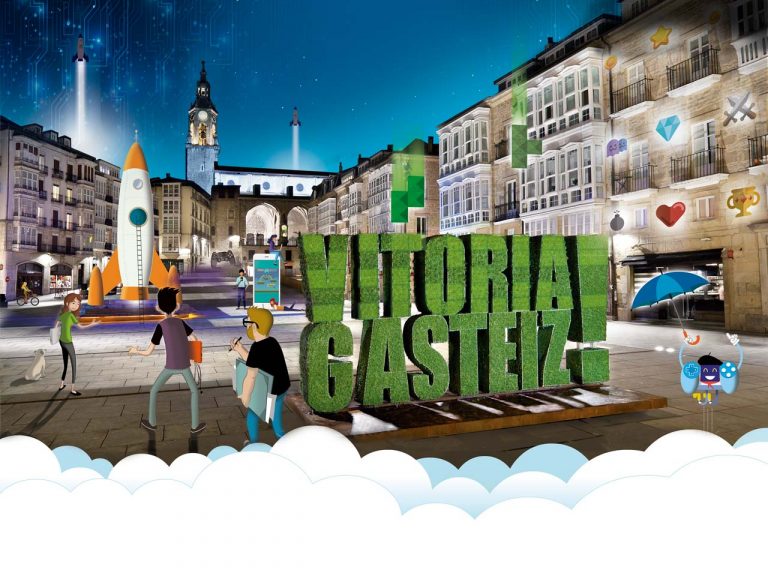
What is a Free-to-play Campus?
The Spanish government is trying to develop the region (Vitoria-Gasteiz and Basque Country). Now industrial production dominates there, and they want to develop other areas. Gamedev there as a whole at zero. With this initiative, they want to attract small indie teams, so that in the end they stay there and open their own studio (or brunch).
Initially, they do not give any money (therefore, they do not take a percentage of the company), but they pay part of your expenses:
- Up to 300 EUR for tickets / insurance.
- Housing (one-bedroom apartment).
- How to get around the city.
- Breakfast / lunch / dinner in a cafe near the office.
During the program, industry experts are constantly invited for presentations. Some of them then come to the office and conduct master classes.
Conditions / Requirements
- Invite up to 4 people. If the team has more people, then the rest will have to work remotely.
- The game can be at any stage, under any platform and any genre.
- You must be set up for the f2p model for the game, although you may change your mind at the end of the program.
- It is not necessary to release the game at the end of the program, but a demo should be ready for the demo day.
- Do not take a percentage of the company. Only in case of further investment after a demo day.
- They provide an office (tables, chairs - that's all there is), but not equipment. Monitors can be bought here for a penny.
- It is not necessary to have a company. But if you are acting as an employee of a company, you must have a controlling stake in the company or project.
City
The population is only a couple of hundred thousand people. Nice and well-groomed small town, similar to my own. In the center are pretty cute narrow streets.
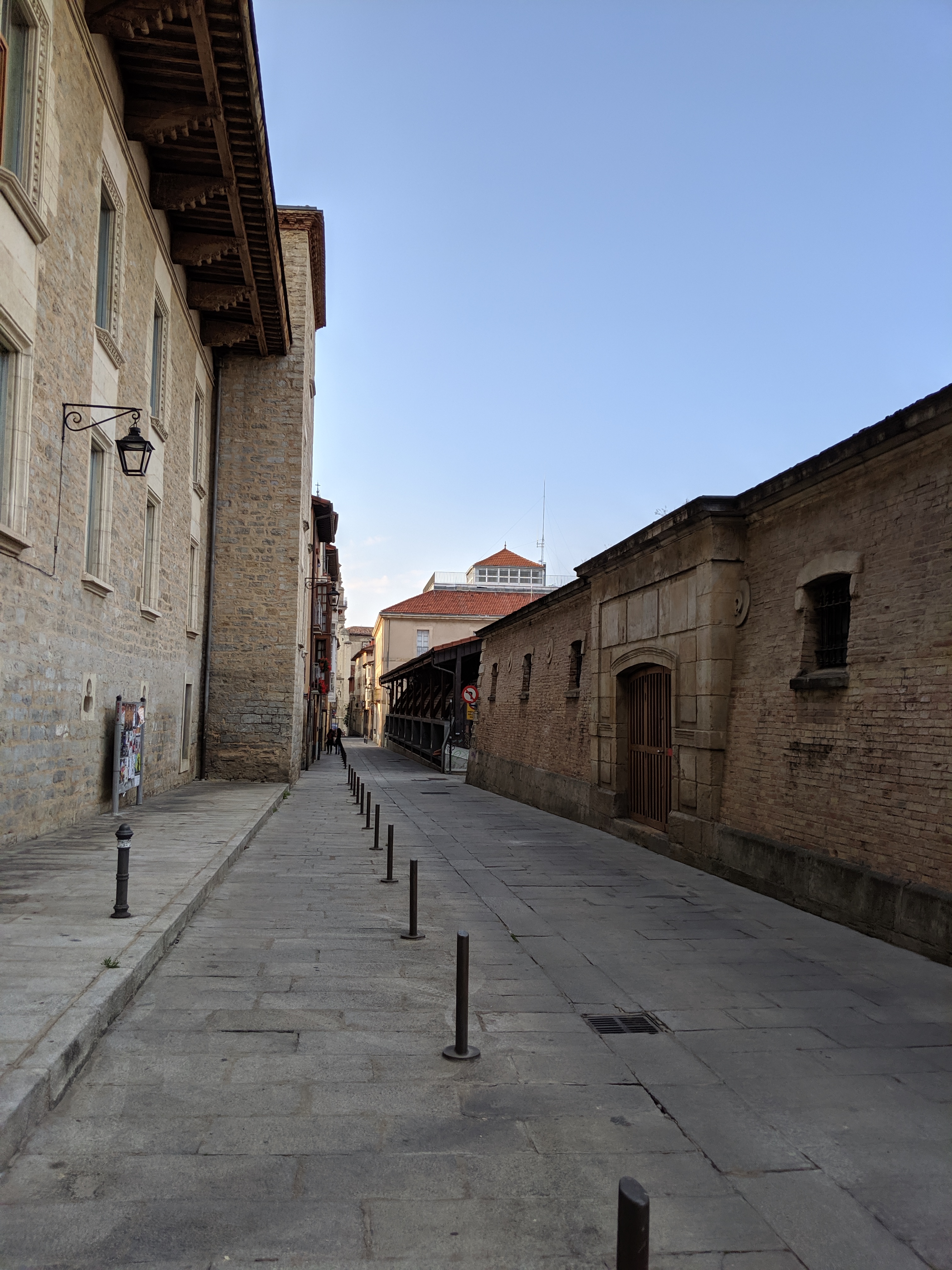
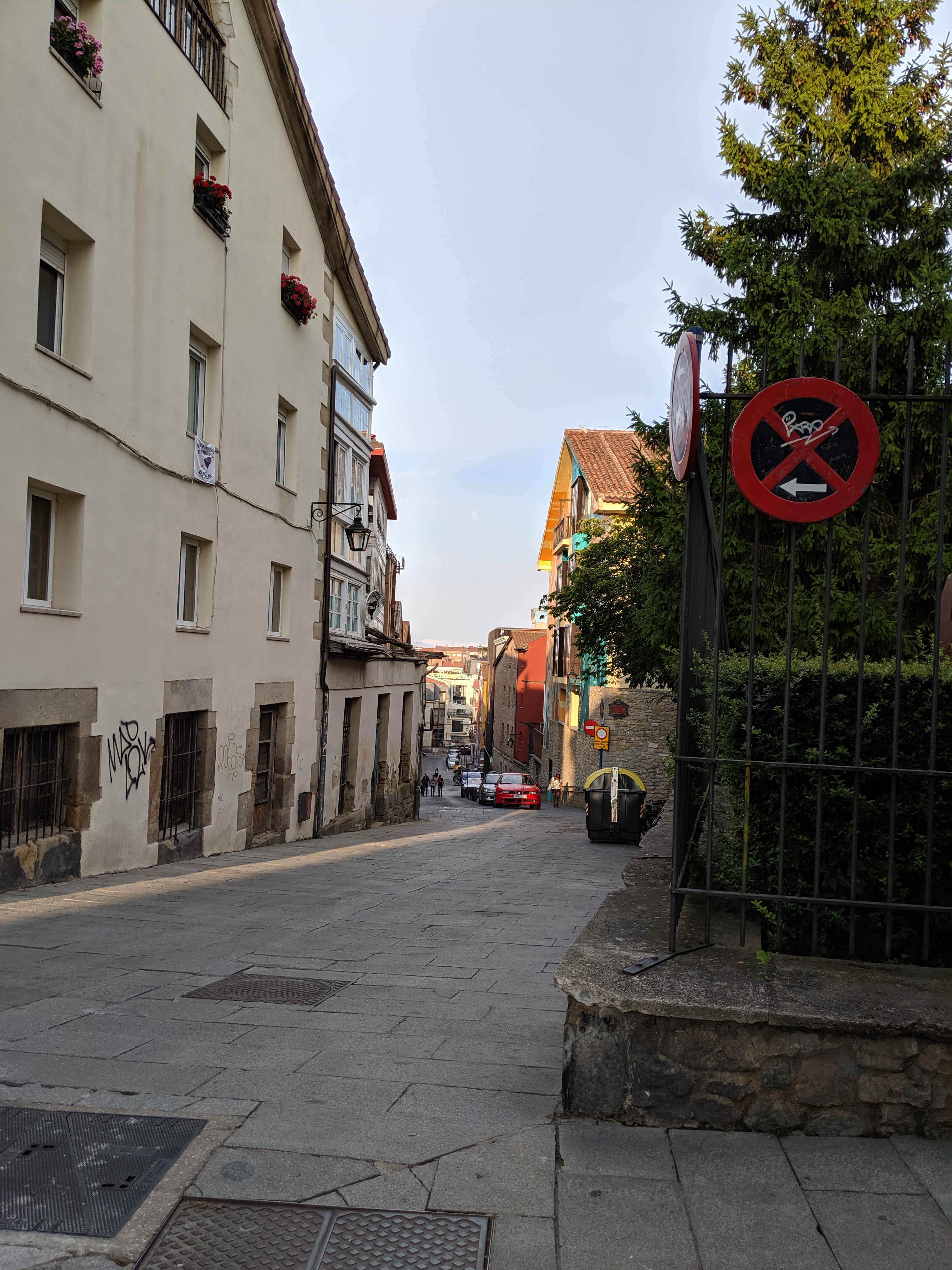
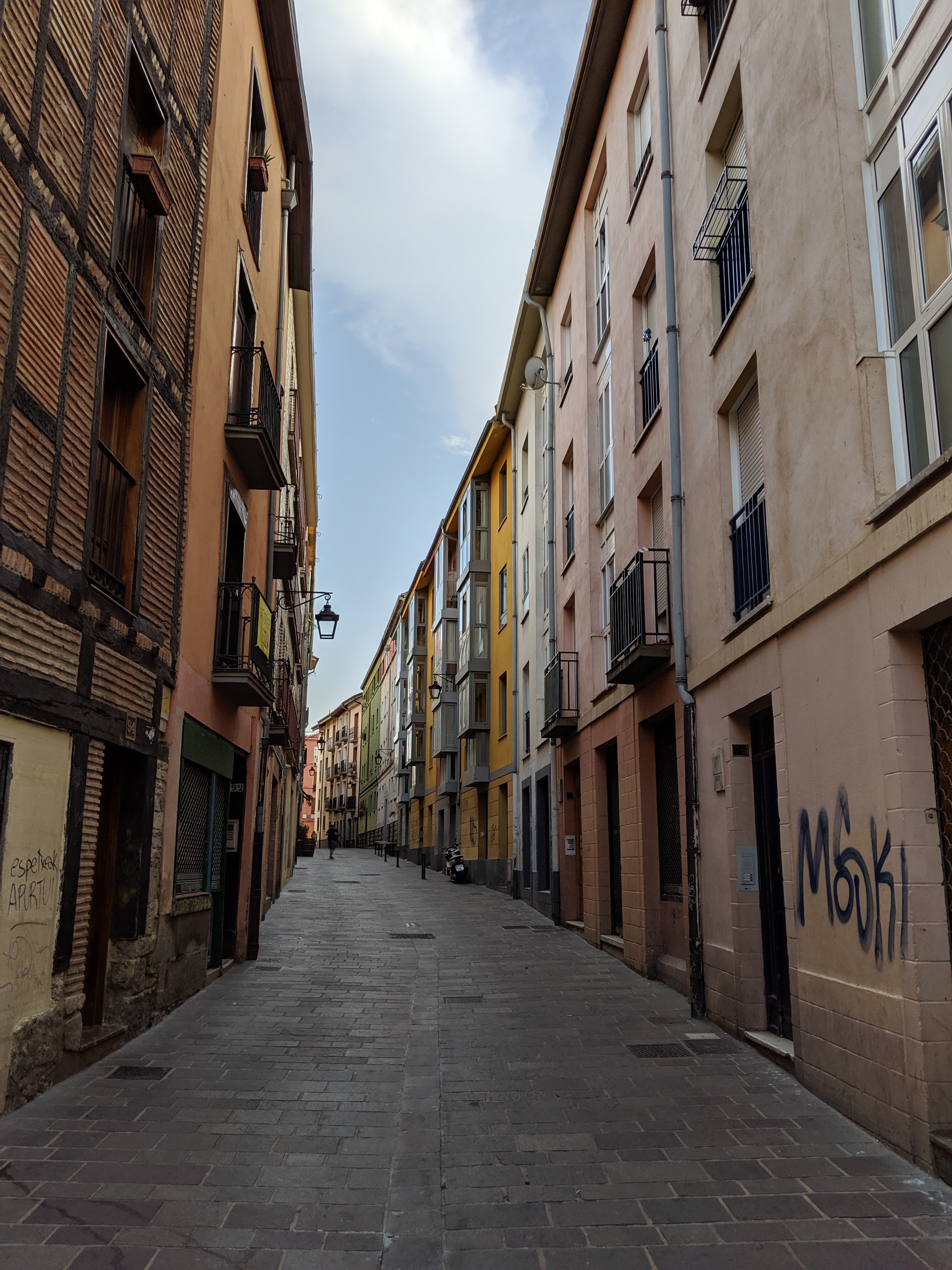
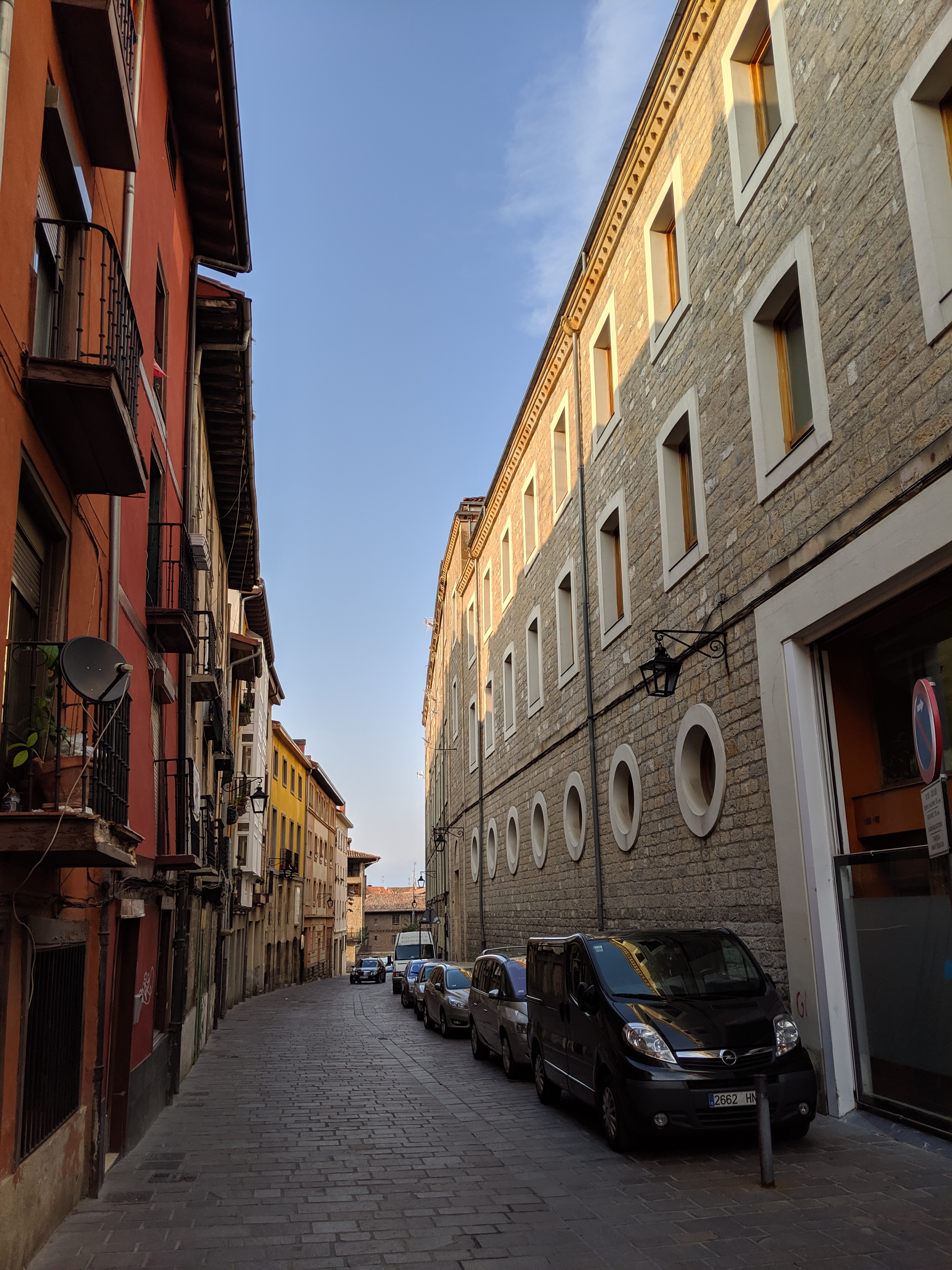
Quite a lot of old Gothic buildings in the center. Here are the old churches and the fortress. And in general, similar architecture prevails in most buildings. Outside the center there are already more modern buildings, but what distinguishes them from ours, they look, hmm, beautiful. There are no stupid signs, there are no unique people who are trying to highlight their windows / balconies. Everything looks pretty uniform and well-groomed.
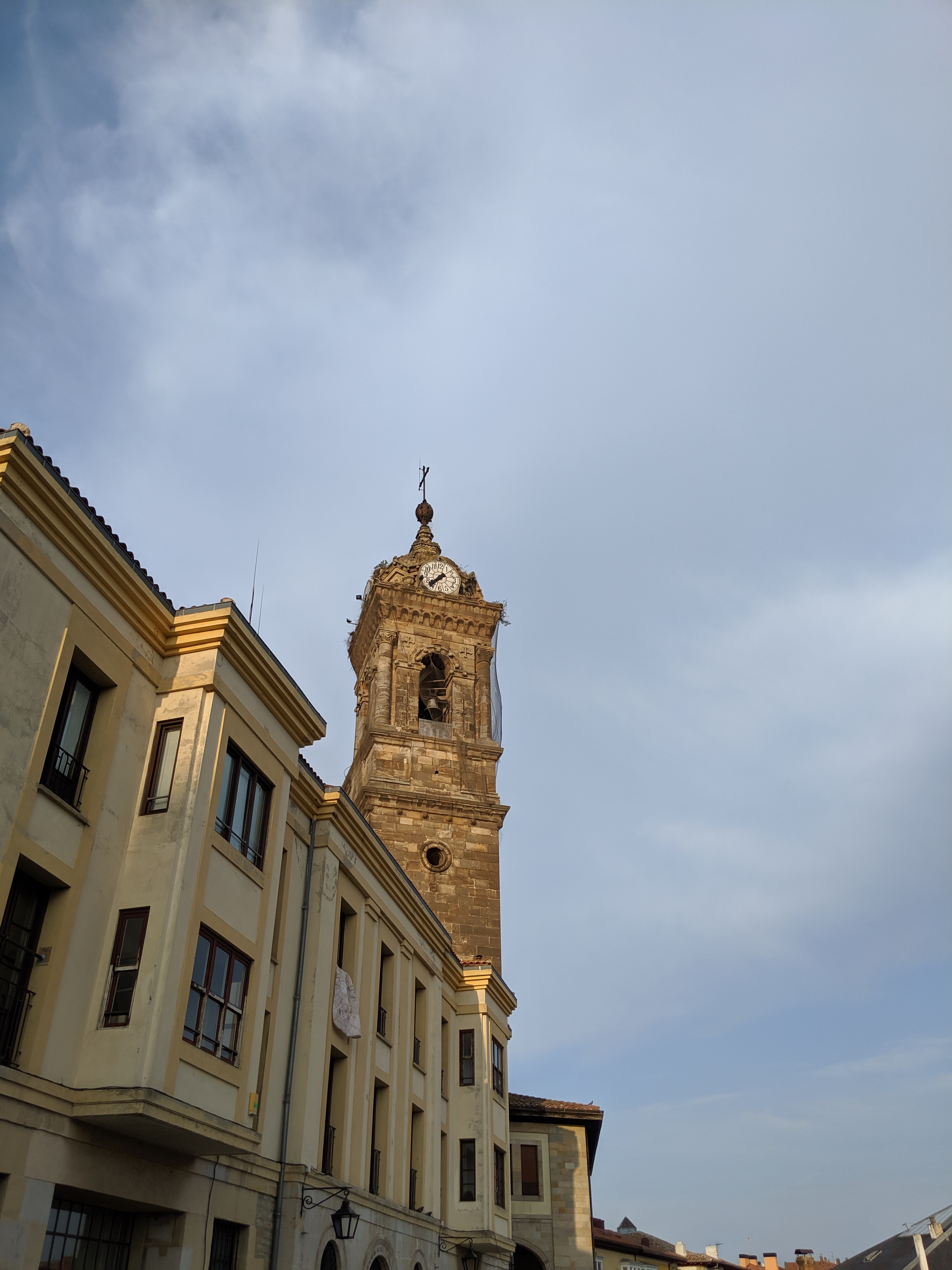
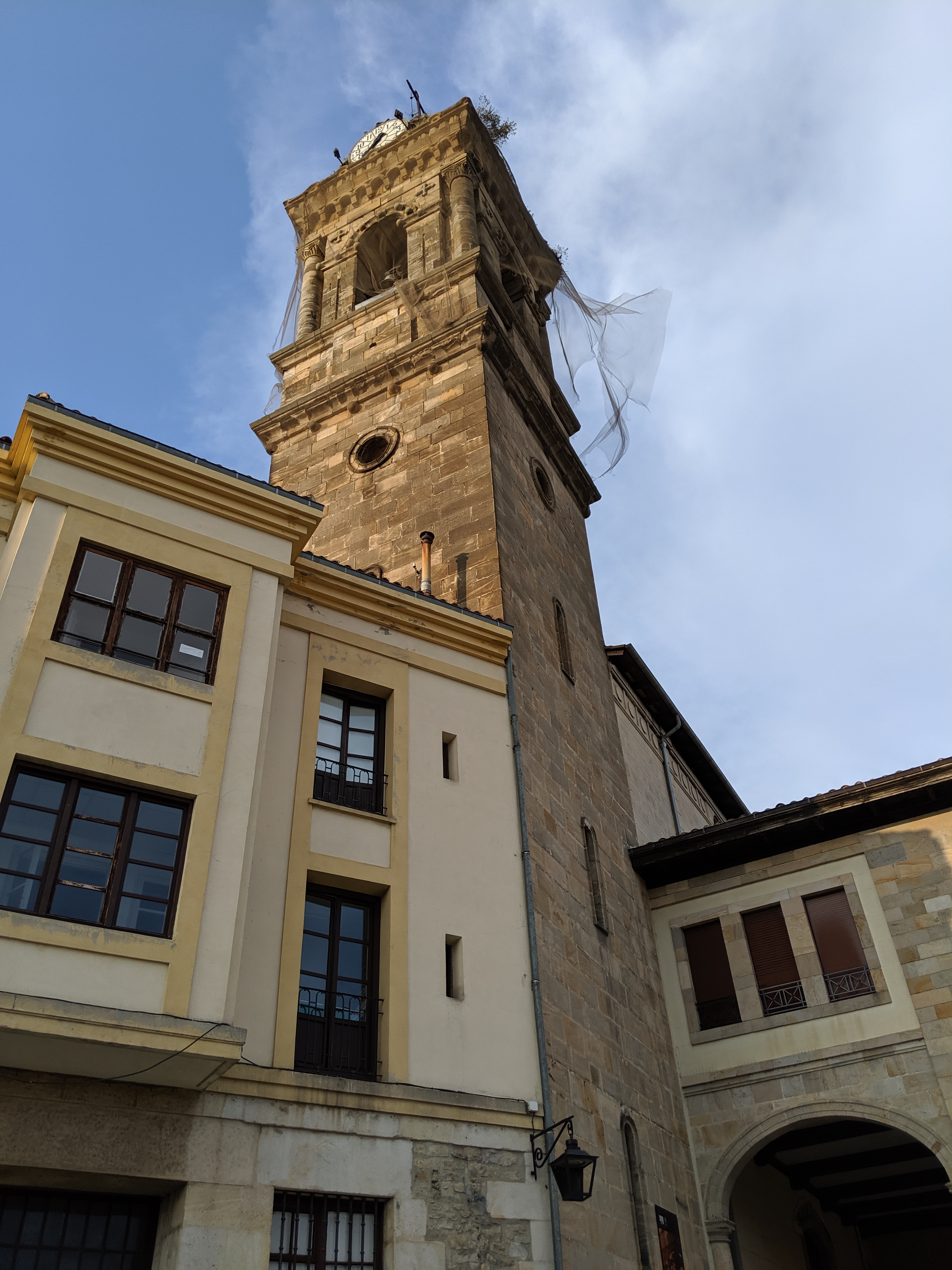
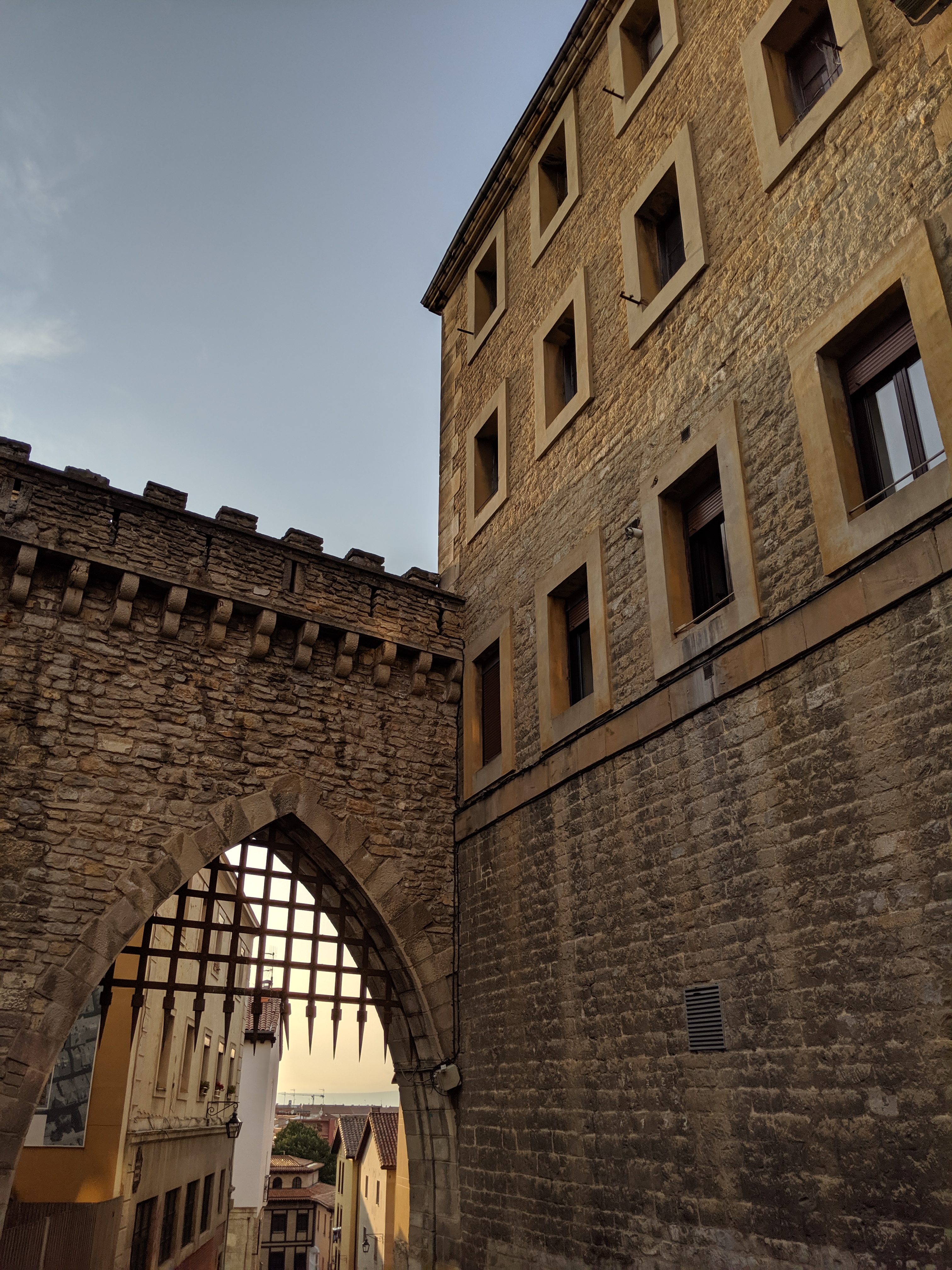
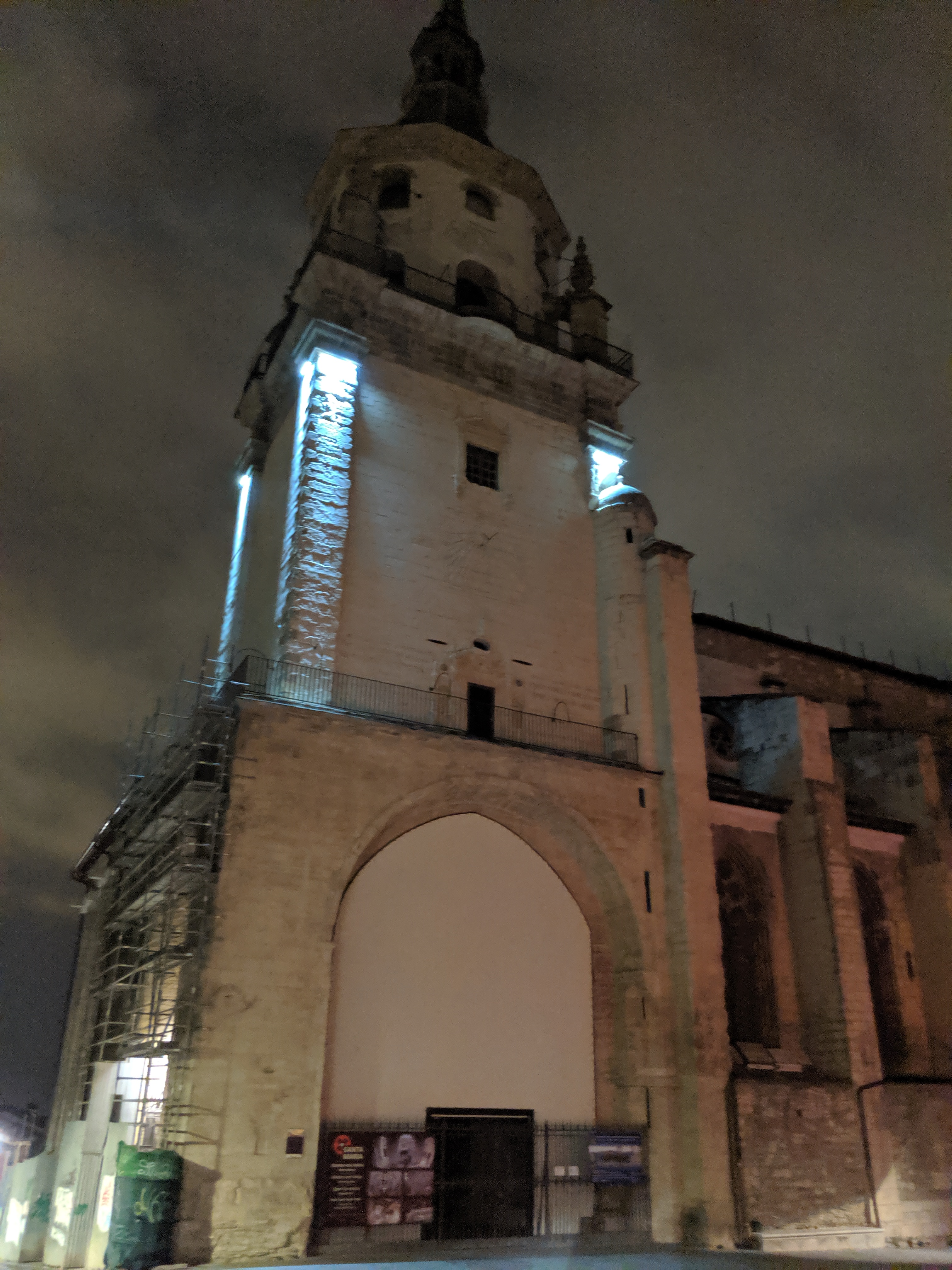
There are parks everywhere, which cannot but rejoice.
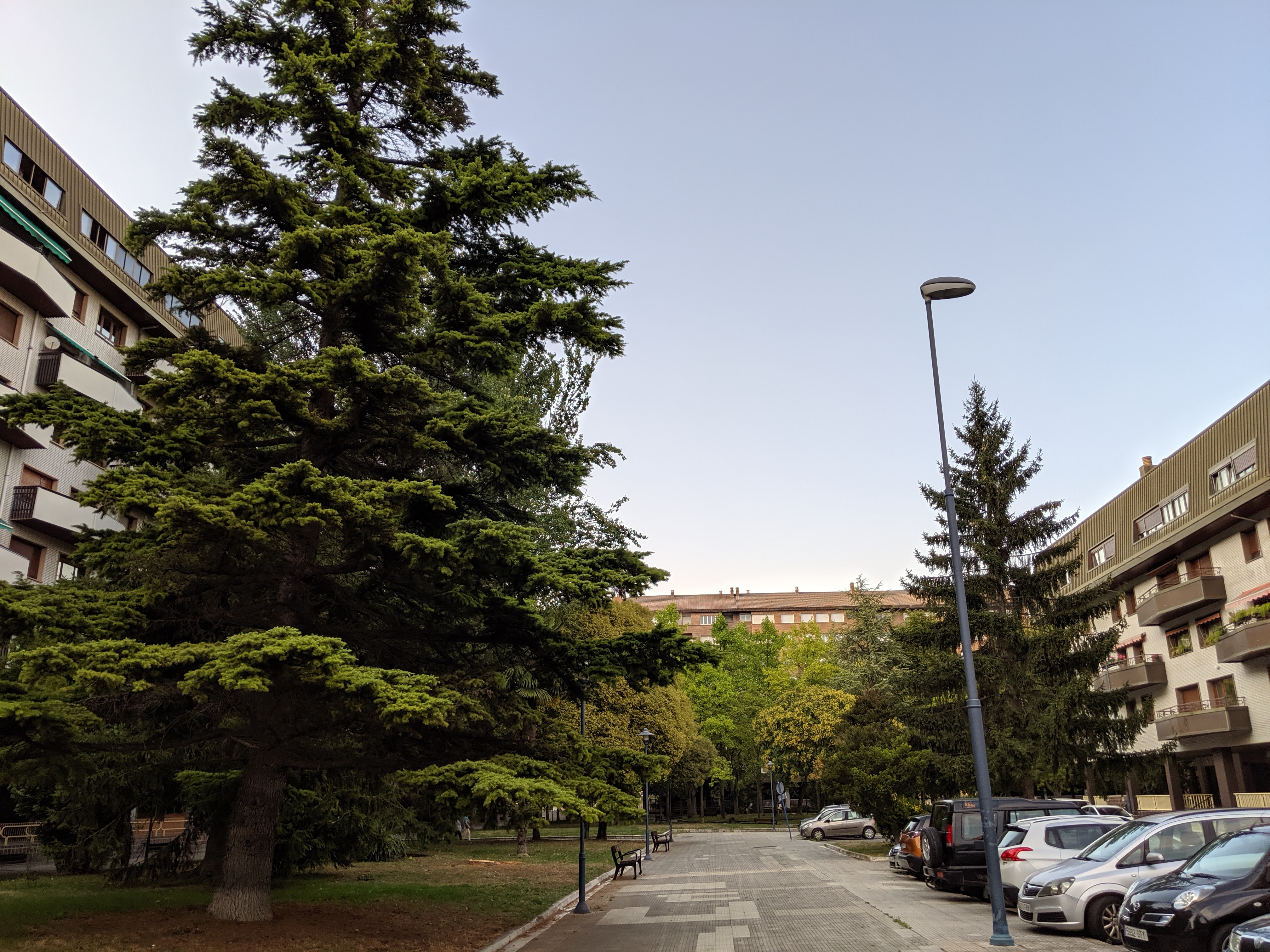
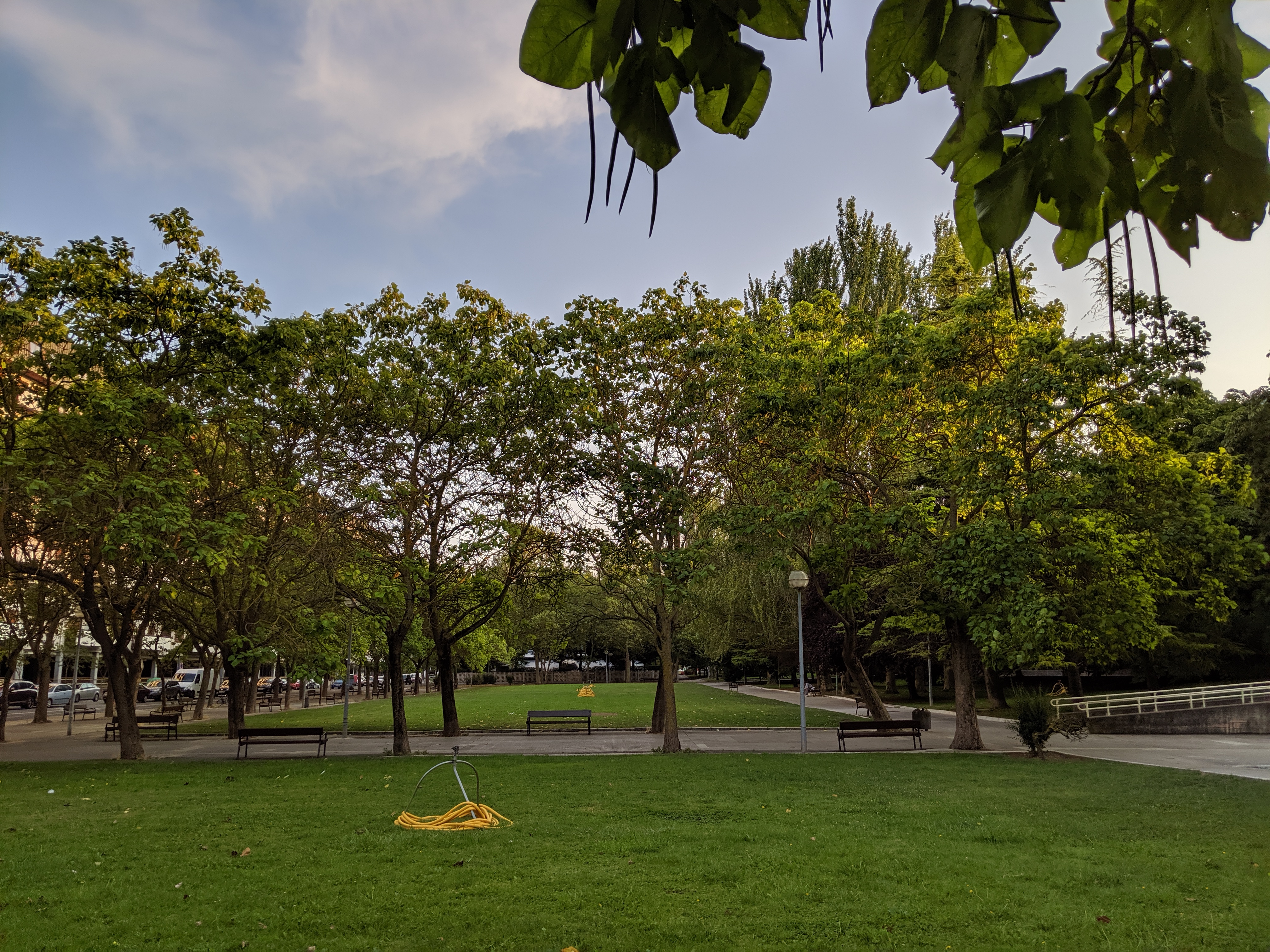
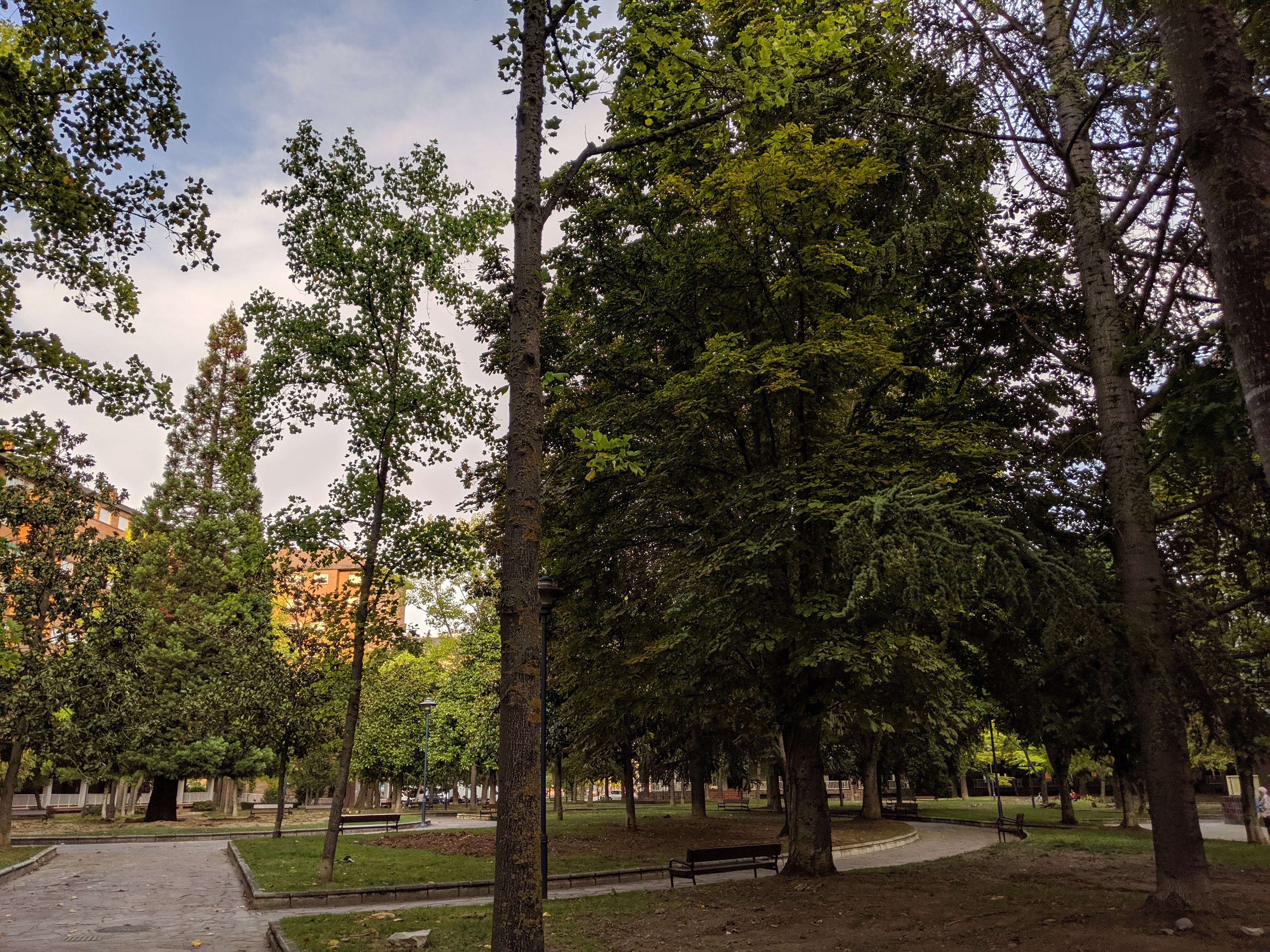
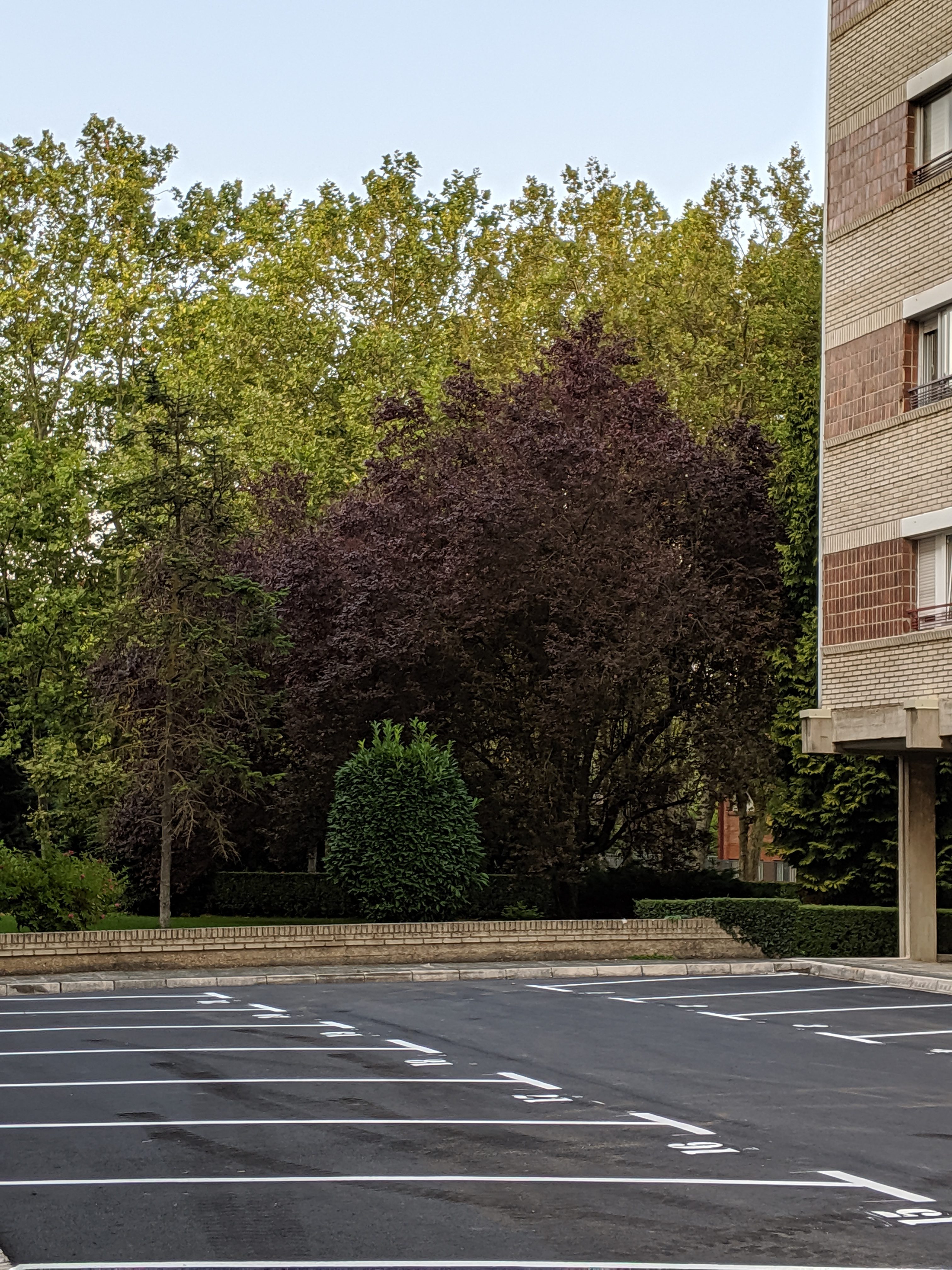
Friendly and smiling people. For example, a few days ago I stood in line at a store (in the center of the line). Another ticket office opened, people behind me moved away and called me to go first in a new line. In our case, people are breaking into a new cash desk) =
I usually go around the city with headphones. Yesterday, the bus driver, at the entrance and payment of the fare, asked me why I did not say hello.
The only flaw so far, but very significant, the locals do not speak English.
Public transport is established, runs regularly. Although the whole city, in principle, can be reached on foot. In Vitoria-Gasteiz (unlike the rest of the country), bicycles are quite popular. You can buy it from hand for 50-100 EUR.
Office
Small and comfortable office for several teams.
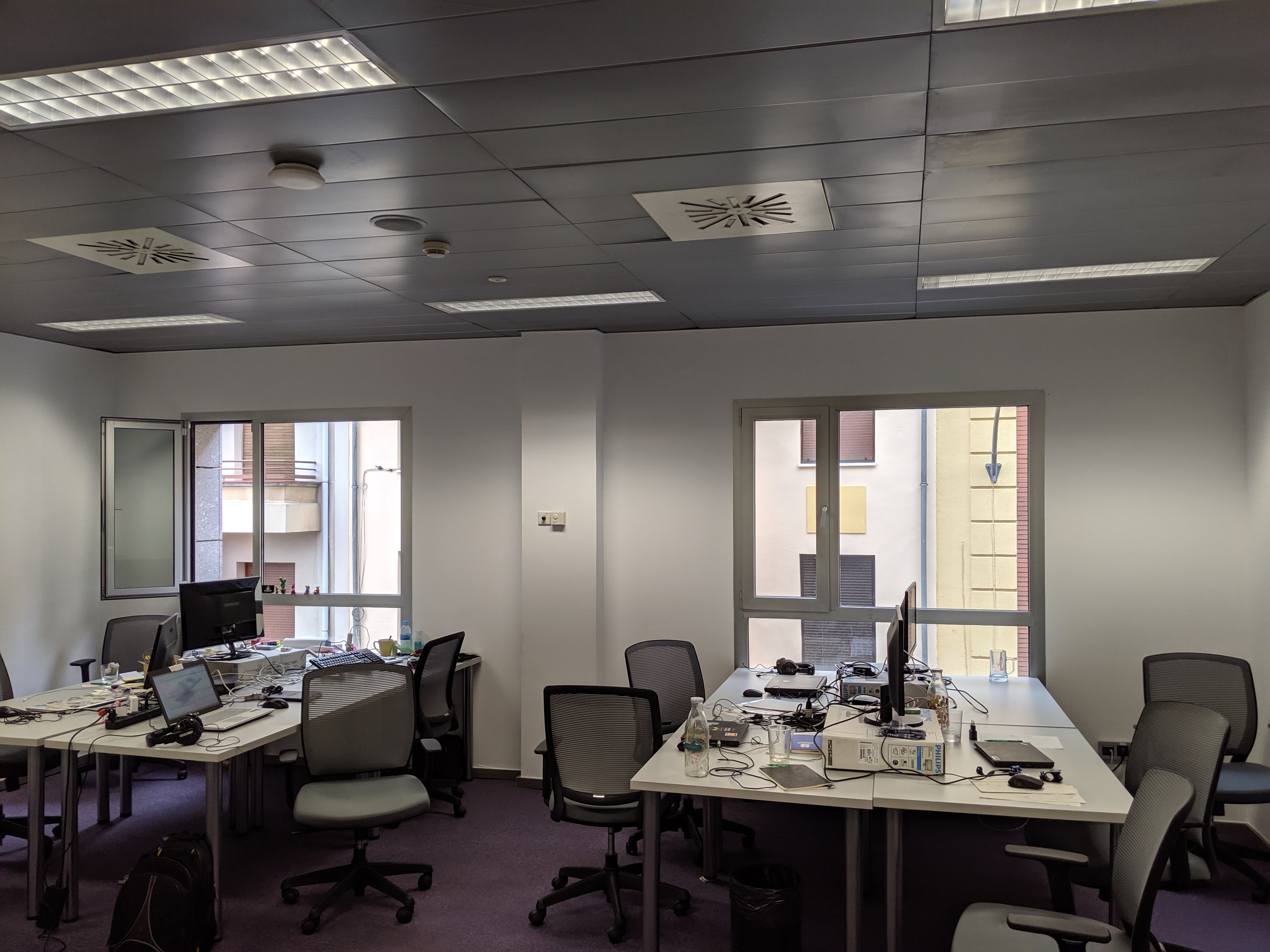
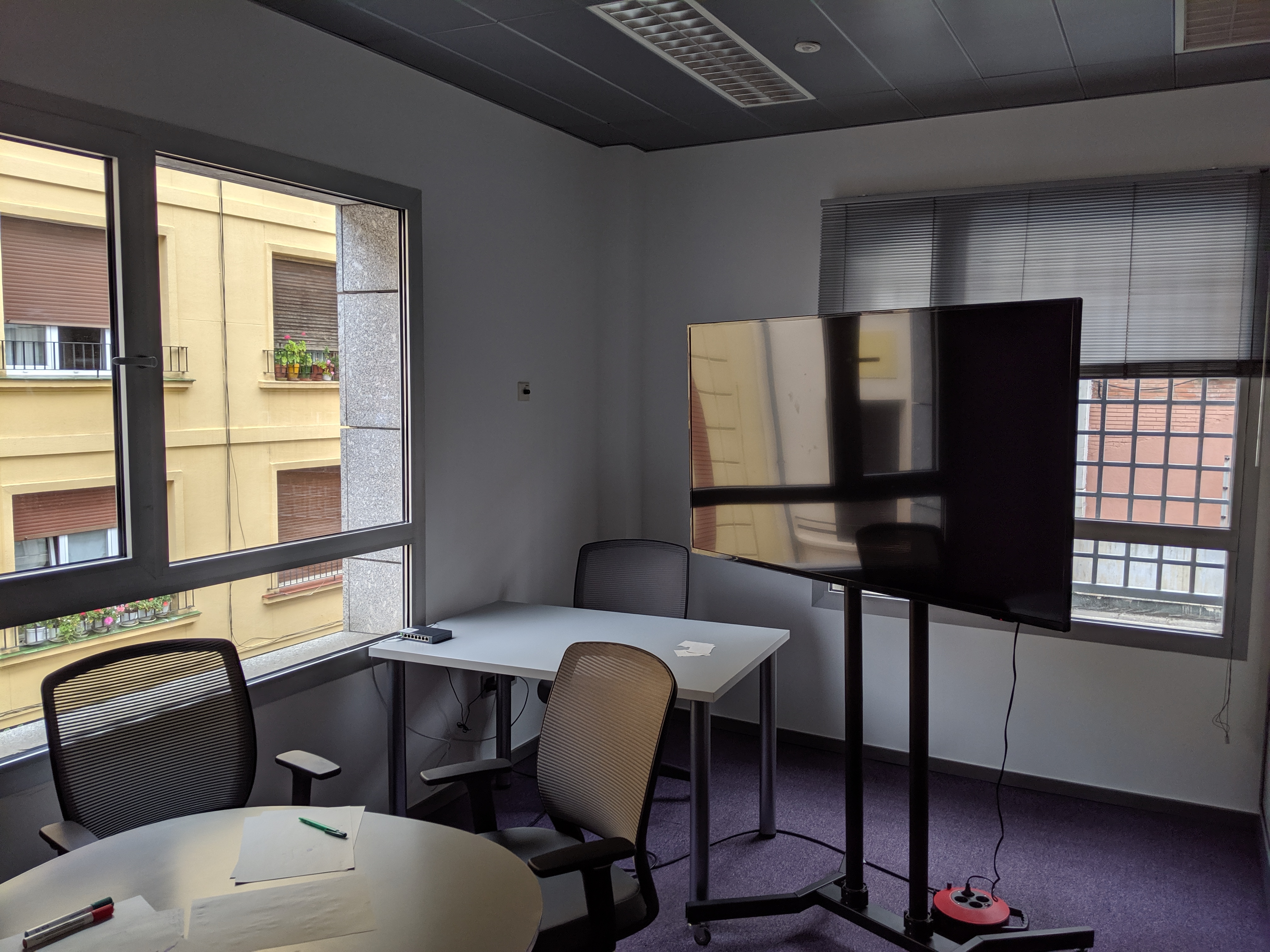
In total, there are 4 teams in our batch (including us) from different countries: Serbia, Canada, Russia and one local team from Barcelona. It works quite amicably, some go to some events / go to the sea together.
Nearby is a cafe where they feed for free. For clarity. Lunch / dinner consists of 3 dishes. At first, usually salad / rice / soup / pasta. On the second something meat. For dessert, ice cream / souffle / fruit. Plus coffee / tea / juice / wine.
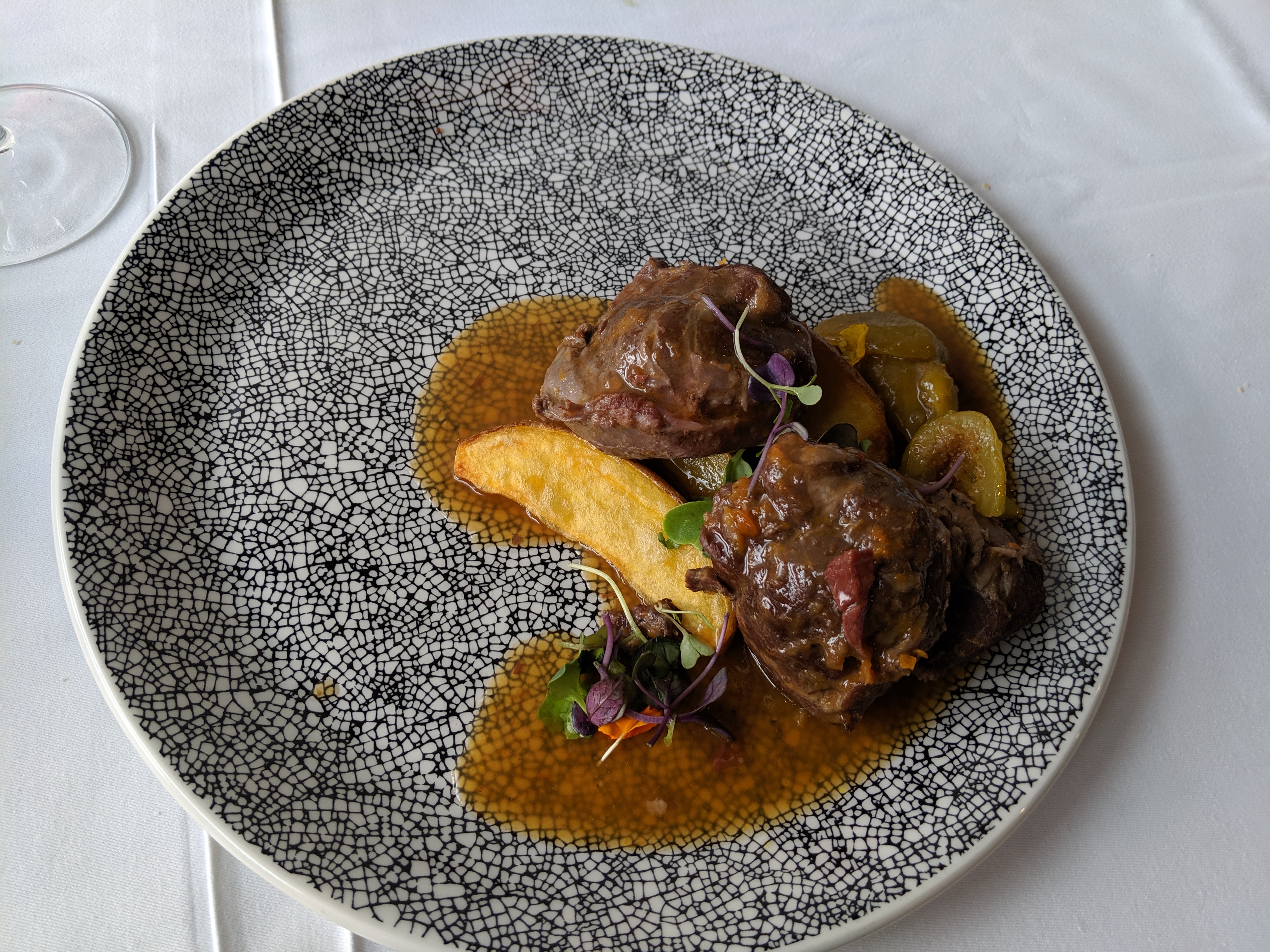
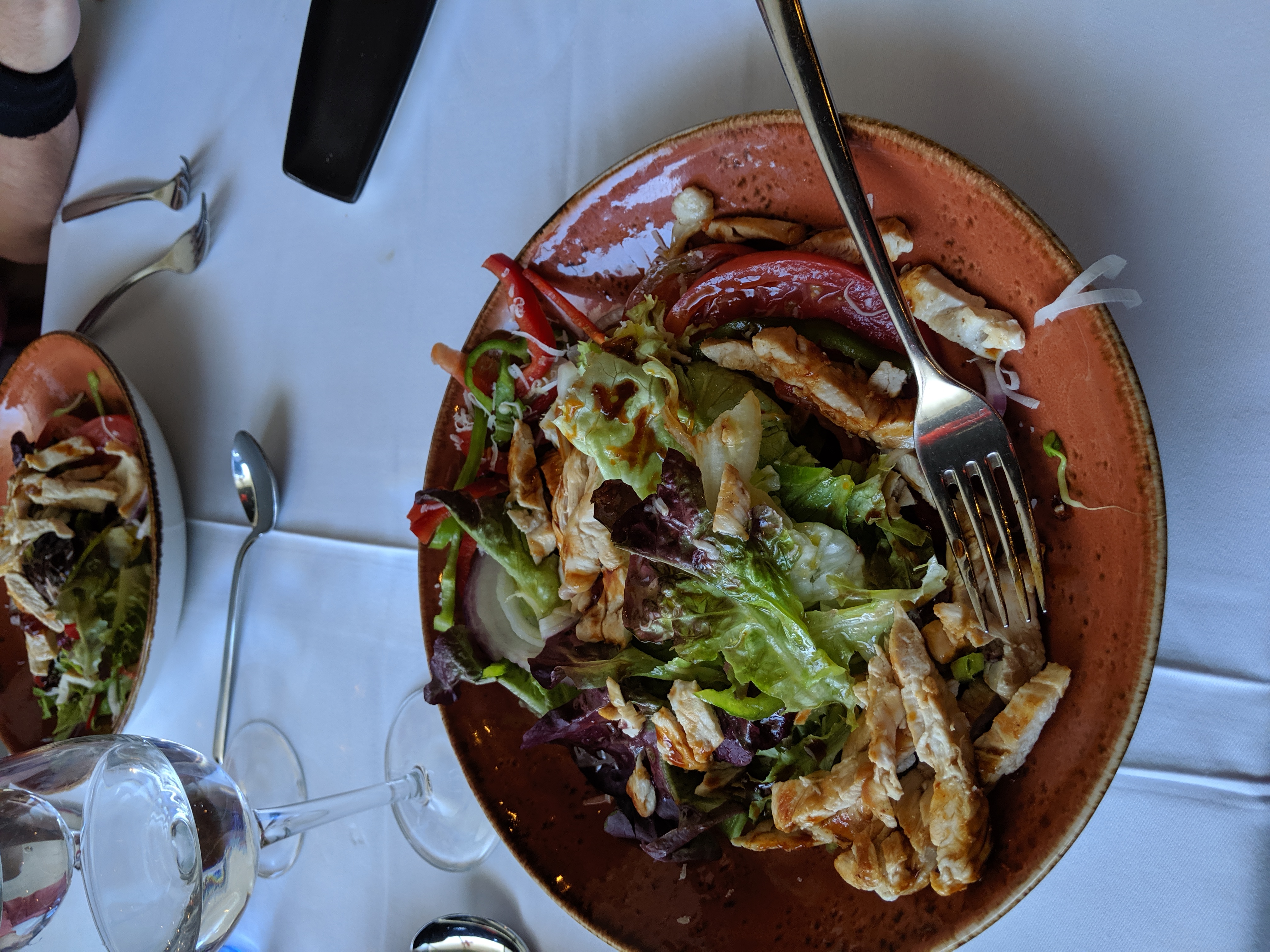
Reports
Once a week, on average, they invite famous (and not so) people from the industry.
For example, Stephane Assadourian (one of the founders of the Assassin's Creed franchise) talked about the methodology / approach in the early stages of development to identify key aspects from a business perspective. Then he spent a whole week with us in the office to analyze team projects. Many seemingly obvious things, but for some reason few people follow them.
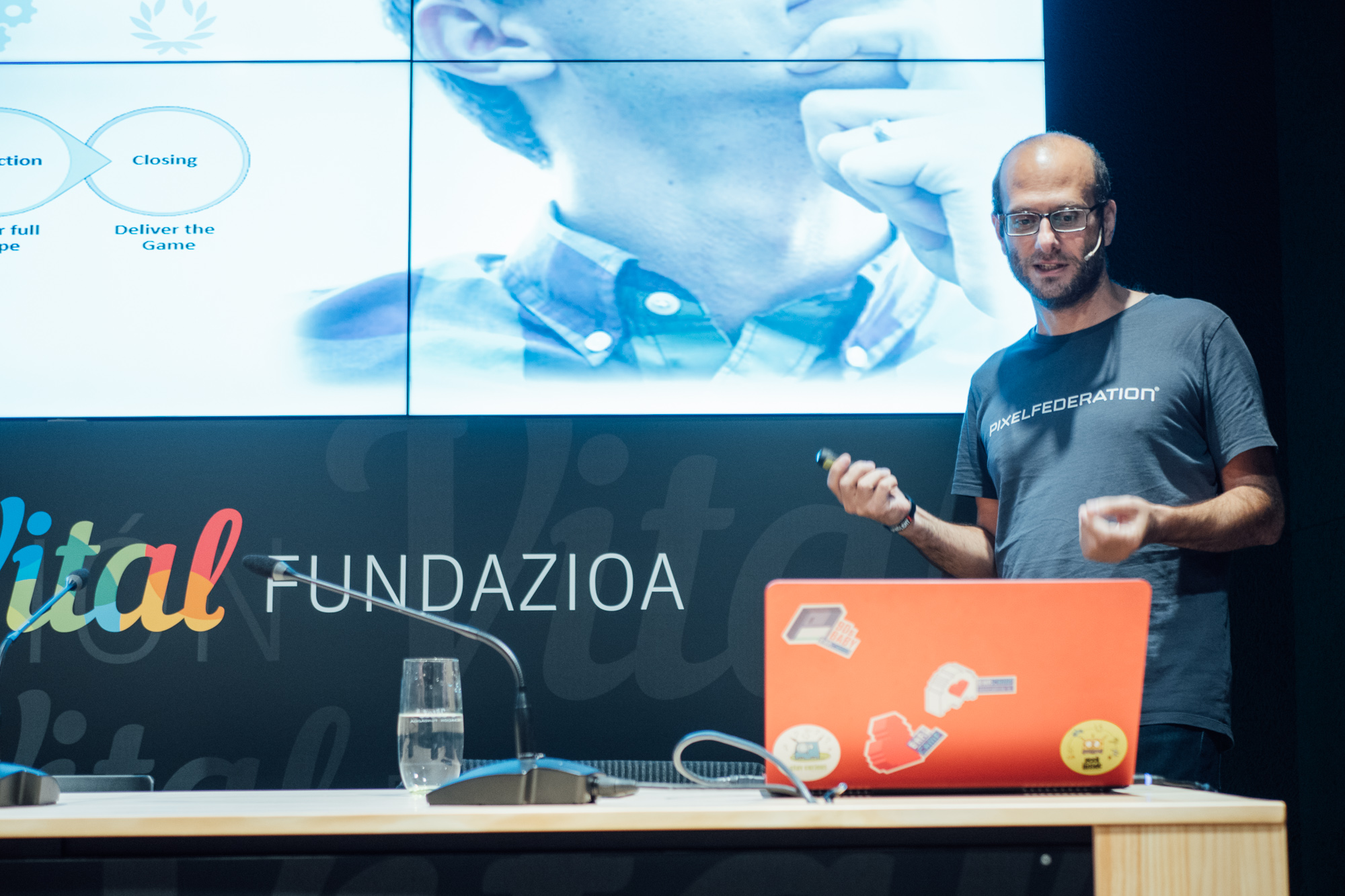
Perhaps I’ll talk about this in a separate article.
By the way, Stephane himself left Ubisoft, because he does not like that the company has turned into a conveyor and is not trying to experiment. Now he is engaged in consulting and producing teams . If you would like to work with him, write to me, I will do an intro.
Investments
After the demo day, you can try to get investment for the project. On average, it is 100-200k EUR at 10-20%. This is speaking about public investment. Plus, if you hire locals to work, then up to 9k of their salary will be paid for you. Up to 30k (when paying up to 50% of the cost) for equipment. Provide an office for almost a penny. But for this you need to open a company in the country. Design around 5k EUR. Plus, you will need to do an entrepreneur visa.
From what I understood from the discussions, you can start all this in parallel. That is, you apply for registration of a company / visa (you do not need to pay 5k yet). At the same time trying to negotiate an investment. If everything is successful, then open a company. If not, then stop the creation process.
In addition, there are closed (venture) investments, business angels, etc.
Conclusion
Unfortunately, I was not at the demo bottom, because flew off to Unite Copenhagen 2019 . I’ll write a separate article about this conference.
I repent, I do not know how to write such texts. I hope I have covered the main aspects and at least it will come in handy for someone.
My main goal is to show that you, in fact, have a lot of resources available that you can use when developing your game. And most importantly, do not be afraid, you need to try!
All Articles